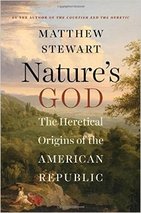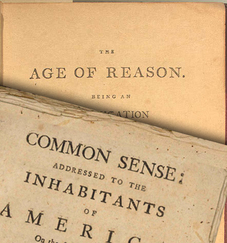 There’s a new book on the founding of America that has been receiving a lot of praise lately. It’s another book by atheist philosopher Matthew Stewart which he provocatively entitled Nature’s God: The Heretical Origins of the American Republic. Stewart’s foundational premise is that "'Nature's God' … the presiding deity of the American Revolution is another word for 'Nature.'"[1] To support this claim, Stewart traced the origin of the phrase “Nature’s God” back to a poem written in 1732 by Alexander Pope and argues from thence that this God could not possibly be the God of the Bible but rather a pantheistic god from ancient Greece.
0 Comments
 The first point of the BIBLE answer to the TULIP is that of Basic Ability. According to the Calvinist doctrine of total depravity, every individual is born in a condition so completely enslaved to sin that he cannot even repent and seek forgiveness unless God first regenerates his soul and causes him to be born again. Most of those who reject this doctrine do so by claiming that God has given every man a measure of prevenient grace which enables all men to freely choose to accept salvation, but I would like to take a different approach.  Contrary to popular opinion, Benjamin Franklin was a Christian who thought that the Bible was "the most faithful of all Histories." In fact, Franklin thought so highly of the Bible that he argued in the Constitutional Convention that "We should remember the character which the Scripture requires in rulers, that they should be men hating covetousness." In 1788, Franklin wrote a letter to the Federal Gazette in which he used the example of the government of ancient Israel to defend the newly written Constitution of the United States. Franklin makes several observations in this piece which serve as unquestionable evidence of the fact that he was a sincere Christian. Here is the text of Franklin's letter:  In recognition of the Fourth of July, I was invited to discuss the faith of our founders on the Deeper Waters podcast. The audio from the podcast is now available online, and I would like to invite all my readers to listen to it. It was a two hour broadcast, so we were able to cover a lot of topics. I've included a mostly accurate rundown of topics below if you want to jump to a few in particular.  I was listening to Dr. James White’s podcast the other day and heard him defending the Calvinist TULIP and criticizing other floral acrostics attempting to provide a contrasting view of salvation. I’ve always disagreed with the doctrines of Calvinism, but I’ve never attempted to organize my disagreement into a simple acrostic which could stand toe-to-toe with the TULIP. That is, I’ve never done so before now. While listening to Dr. White’s podcast, I came up with a simple acrostic that I think defeats the TULIP with ease.  One of the primary objections that is brought against the idea of eternal punishment is the claim that a God of mercy would not keep someone alive just so that they could suffer pain for all eternity. On the surface, this seems like a valid objection, and it is used with great effect to sway today’s emotionally driven believers into rejecting the idea of eternal punishment. The question, however, is not whether we think that eternal punishment is consistent with the character of God but rather whether or not the Bible says that it is. In that case, let’s look at a few of the passages which assure us that our merciful God is quite capable of condemning sentient beings to an eternity of pain.  Yesterday, I wrote that the quickest way to determine how long the lost would be punished is to note that Christ used the same word aionios to describe the length of their punishment that He used to describe the length of the reward for the righteous. Now, I’d like to expand on that statement by looking at a few other uses of the word aionios in Scripture.  The idea that the lost will suffer eternal punishment has often been questioned by Christians who doubt that a God of mercy would condone such cruelty. Instead, they often come up with other ideas about the punishment of the lost such as the idea that they will simply be annihilated or that they will only suffer for a period of time before being given another opportunity to turn to God. There are several logical problems with attempting to reconcile either of these views to the accounts of Scripture, but in order to see that, we must actually know what the Scripture says about the punishment of the lost. Unfortunately, I have discovered that very few Christians have ever actually studied this aspect of God’s Word.  One of the more perplexing aspects of the American Revolution is the contrast between Thomas Paine's pamphlet Common Sense and his later work Age of Reason. In Common Sense, Paine relied heavily on arguments from Scripture to prove his point, but in Age of Reason, he ridiculed the Bible and claimed that “It is from the Bible that man has learned cruelty, rapine, and murder." For many, this contrast is an unsolvable mystery; for others, it is evidence that Paine molded his writings to appeal to the sentiments of his intended audience; but I suspect that there is a better explanation. |
Bill Fortenberry is a Christian philosopher and historian in Birmingham, AL. Bill's work has been cited in several legal journals, and he has appeared as a guest on shows including The Dr. Gina Show, The Michael Hart Show, and Real Science Radio.
Contact Us if you would like to schedule Bill to speak to your church, group, or club. "Give instruction to a wise man, and he will be yet wiser: teach a just man, and he will increase in learning." (Proverbs 9:9)
Search
Topics
All
Archives
June 2024
|


 RSS Feed
RSS Feed